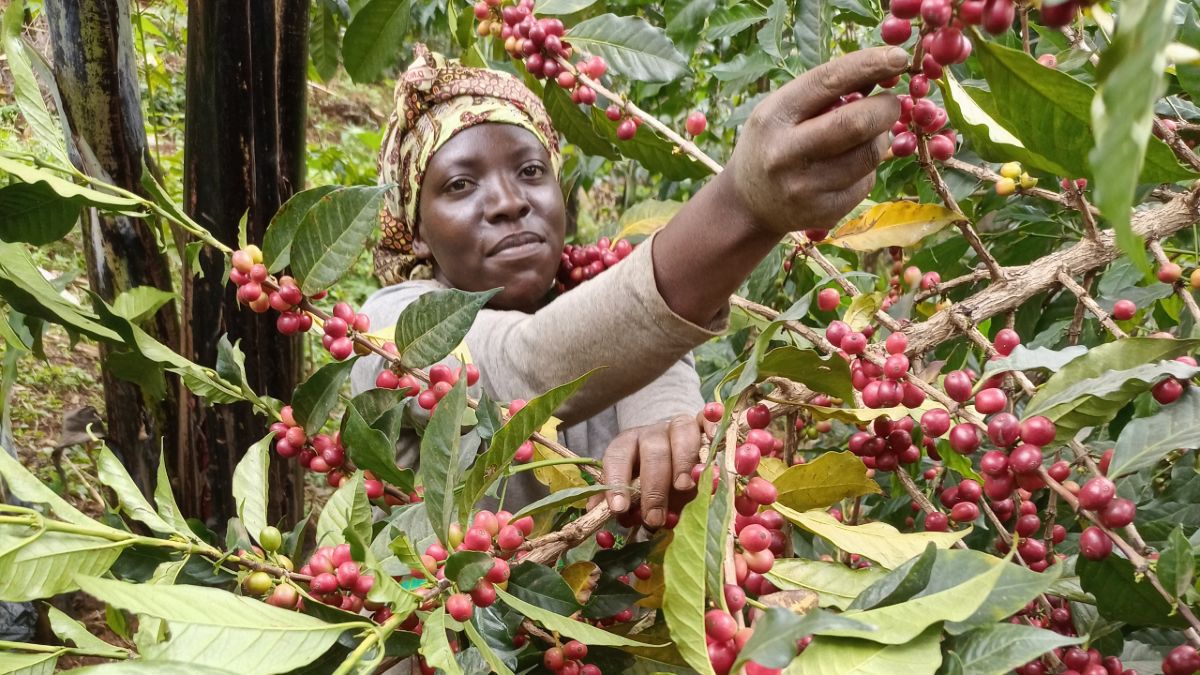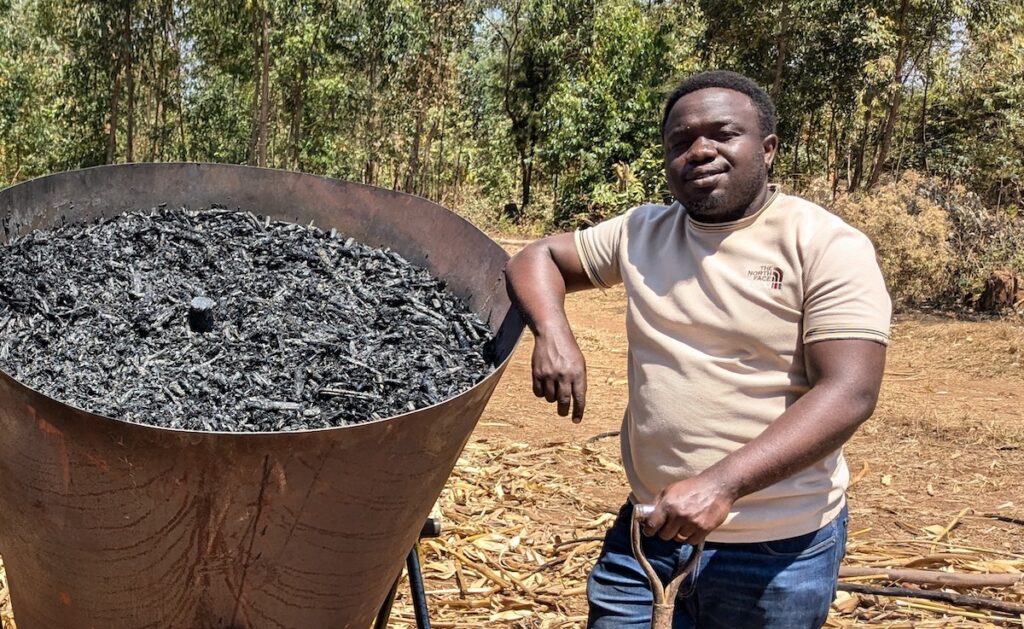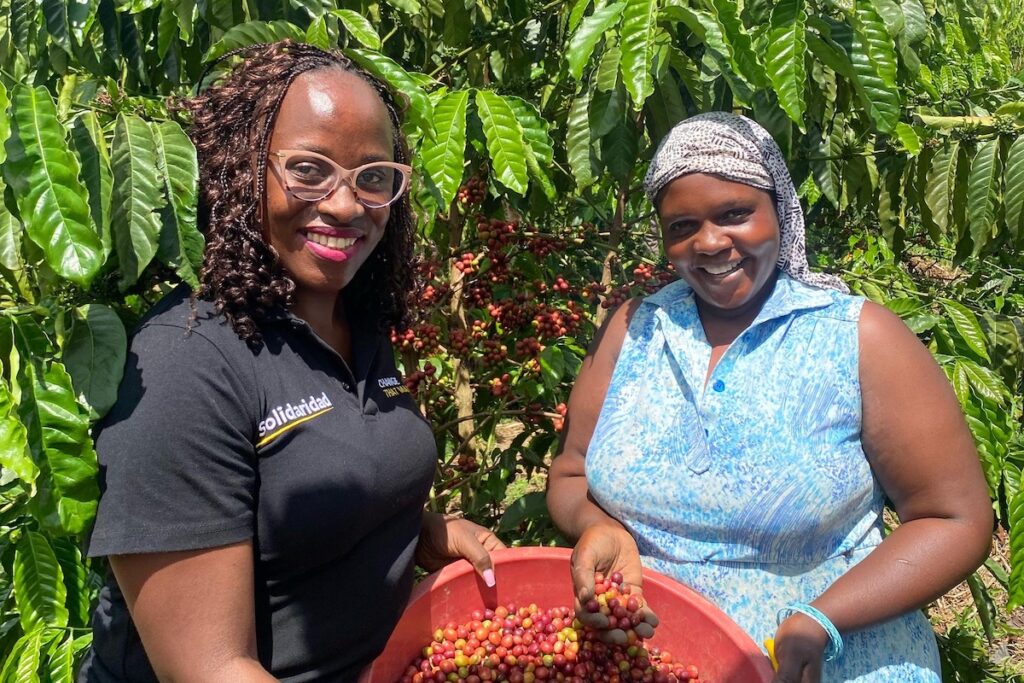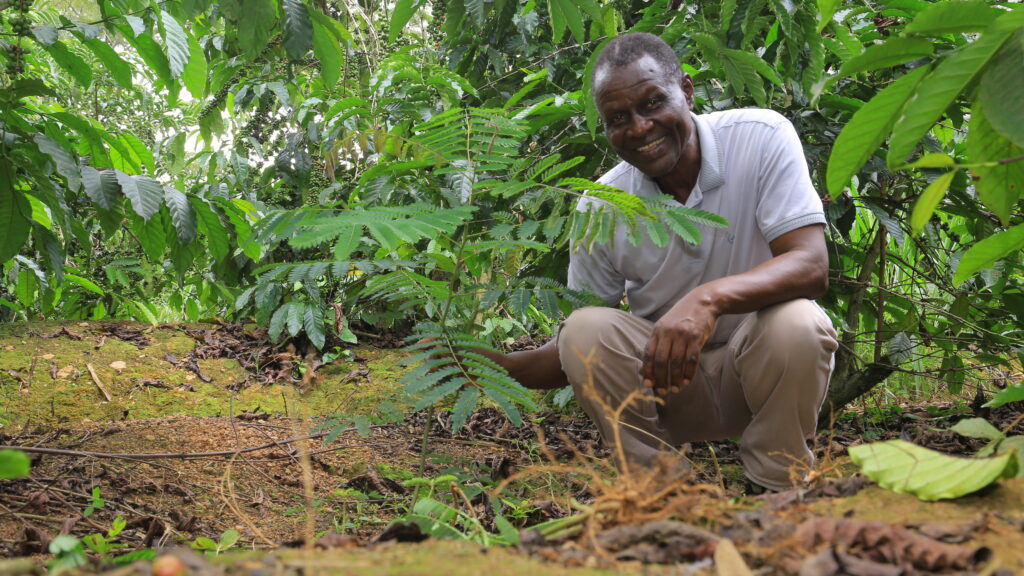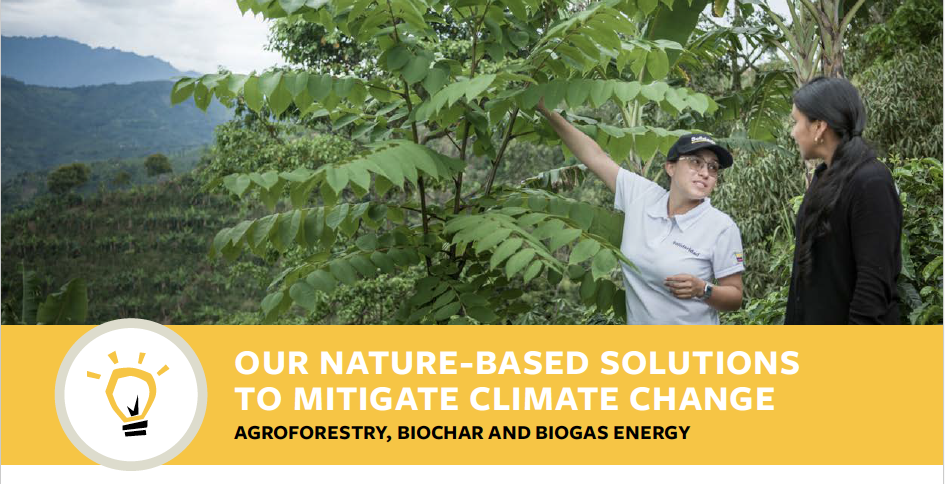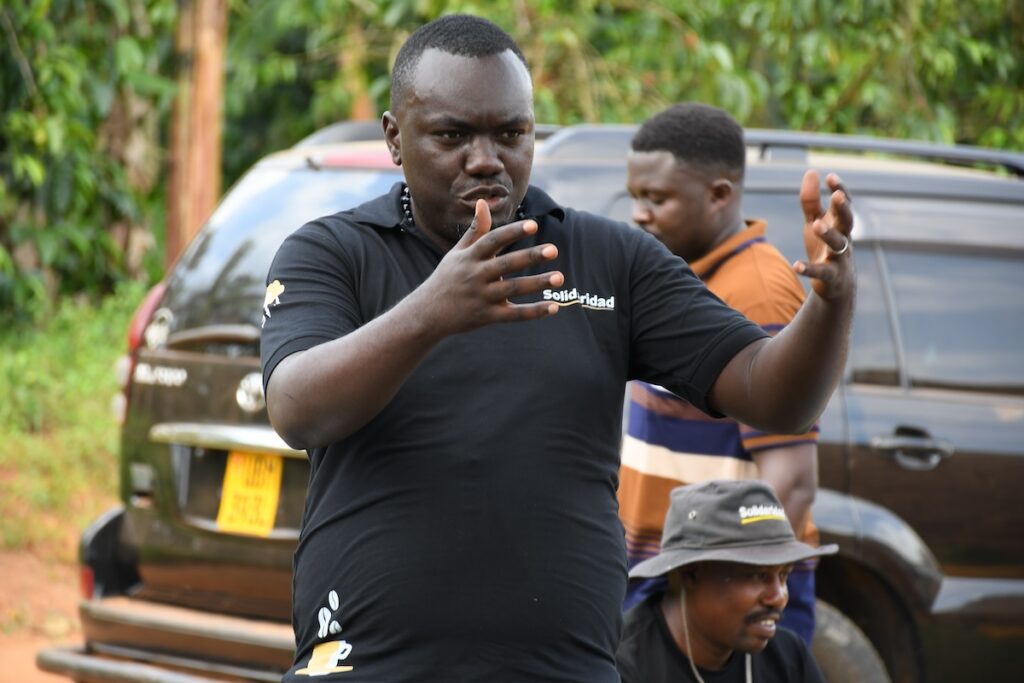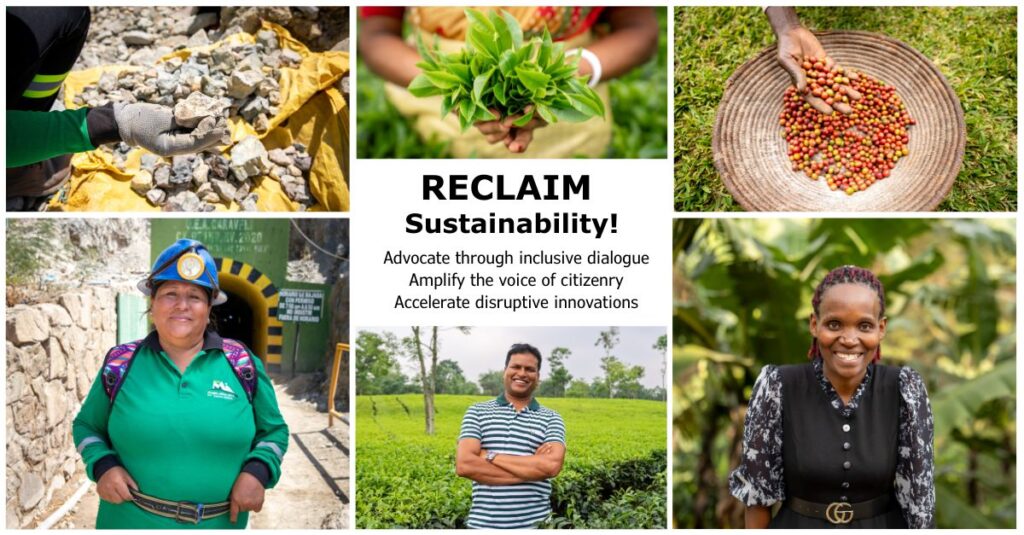Coffee resiliency in East Africa
Uganda’s exports hit a record high in 2021, reaching 6.77 million 60kg bags valued at $718.57 million, the highest in 30 years, compared to 5.49 million bags valued at $520.01 in 2020 representing 23% and 38% increase in volumes and value respectively. Despite the positive trend, smallholder producers still face a myriad of obstacles, including limited access to training and productive resources such as tools, finance, inputs and extension services. Climate change and variability and lack of inclusivity also continue to hamper the sector’s productivity, profitability and sustainability.
To address these challenges, Solidaridad is implementing the programme funded by Ministry of Foreign Affairs of the Netherlands called Practice for Change: Coffee Resilience programme in East Africa. The programme is targeting 27,000 small, medium scale and estate coffee farmers in Kenya, Tanzania, and Uganda. So far, more than 9,000 coffee farmers in seven districts in Uganda have been reached by the project in the first (2018-2020) and second phase (2021-2022).
Good practices training reaps rewards
In Mount Elgon, Solidaridad has reached 5,500 farmers through this programme with training on pests and disease control, weed control, coffee pruning and rejuvenation, fertilizer application and safe use of pesticides, coffee nutrition, composting, mulching and shade management, among others.
“Since 2018, the programme has reported an 80% adoption rate of the promoted good practices,” said Esther Tino, senior project officer on the programme.
To enhance peer-to-peer learning, the programme has also trained 18 promoters and 17 demonstration farmers from 40 farmer groups in Bulambuli and Sironko districts. In total, the project has established 17 demonstration plots to deliver practical knowledge and skills transfer from the promoter and demonstration farmers to other farmers. Through their groups, farmers also benefited from training on proper use of farm tools.
“We also provided lead farmers with assorted farm management tools including secateurs, ‘pangas’ (machetes), hoes, pruning saws, gumboots, wheelbarrows, spades, and rakes. The project has also linked farmers with suppliers to improve their access to quality inputs and services,” Esther added.
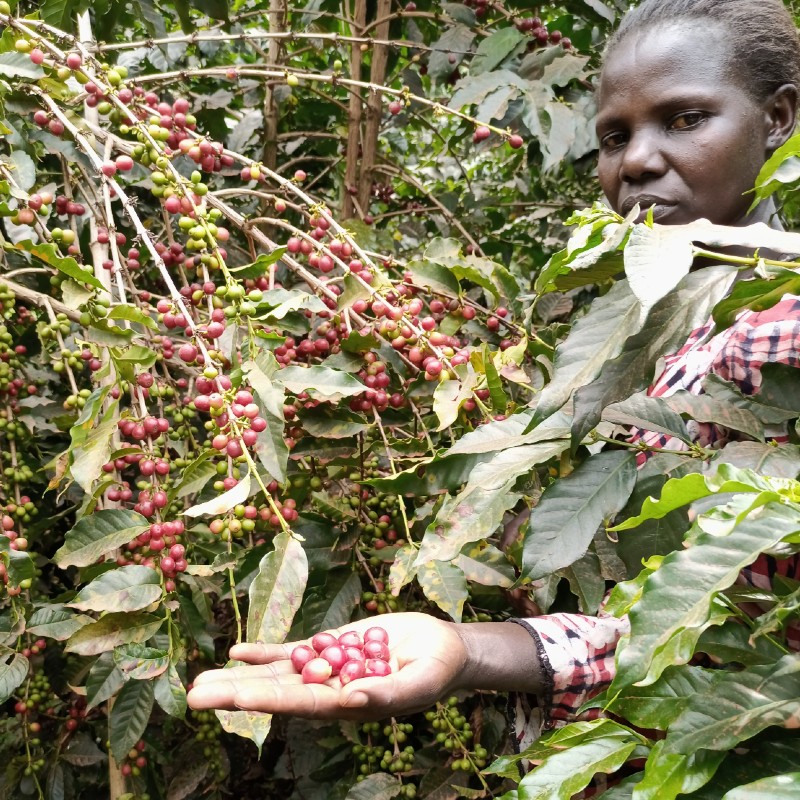
Practice for Change Coffee also provided targeted interventions aimed at enhancing farmers’ knowledge and practical skills in climate-smart agriculture and integrated soil fertility management. The project interventions are envisaged to increase productivity and profitability while guaranteeing sustainable production in balance with nature.
Consolanta Malanga is a coffee farmer from the Bulambuli District of Eastern Uganda. In the 2021/2022 crop season, she received training on fertilizer application from Solidaridad and Kawacom. The programme also provided her with NPK fertilizer.
We increased our farm’s productivity by applying fertilizers properly and implementing other agronomic practices. Yields increased from 1.9 kg per tree in 2020/2021 to 3.4 kg per tree in 2021/2022. Our earnings for the same period increased from 1,450,000 Uganda Shillings (345 euros) to 2,067,000 Uganda Shillings (492 euros). We are now able to cater for our children’s school fees.
Consolanta Malanga, a coffee farmer in Bulambuli District.
In 2021/2022, Uganda’s coffee exports increased by 23%. According to the Uganda Coffee Development Authority, the increase in coffee volumes was attributed to the newly planted coffee, supported by favorable weather. In the same period, coffee prices more than doubled. The positive trend in prices was linked to market access and the incremental efforts towards increasing the volumes of premium grade/quality coffees.
In the 2021/2022 season, farmers in Bulambuli recorded a significant increase in yields with an average of 1.2 tonnes per acre compared to 0.8 tonnes per acre in the previous season. In total, Bulambuli produced 15,720 tonnes compared to 11,569 tonnes in 2020/2021.
Our farmers enjoyed good prices for their coffee from an average of 1,300 to 2,200 Uganda Shillings (0.4 to 0.6 euros) per kg of cherry denoting price increament of 69% and from 7,000 to 12,000 Uganda Shillings (1.6 to 2.8 euros) per kg of parchment denoting price increase of 71%. Because of this, our farmers are motivated.
Wamboza Joel, Senior Agriculture officer in Bulambuli District.\
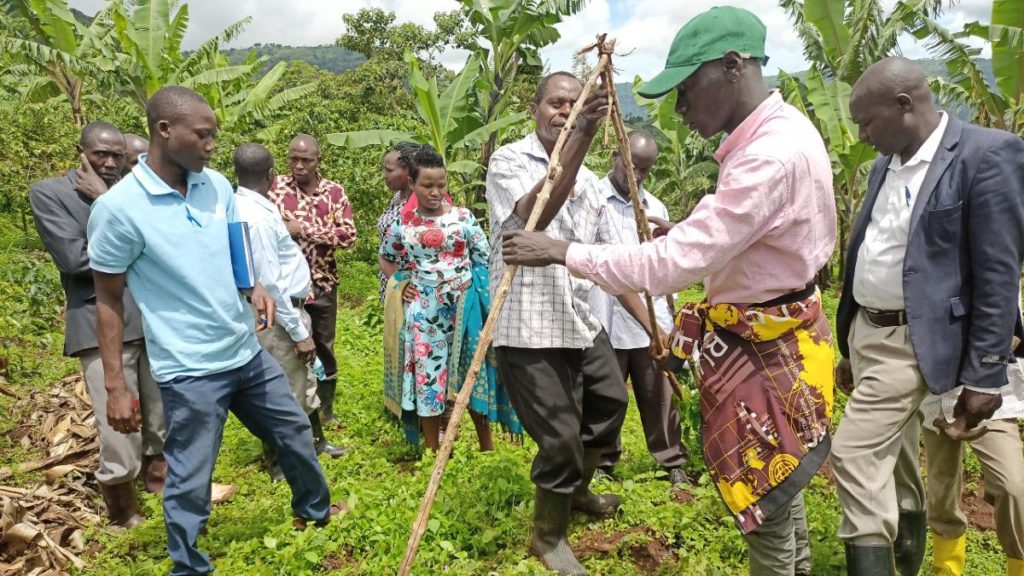
Promoting food and nutrition security through diversification
Practice for Change trained and supported 65 coffee farmers to establish on-farm diversification enterprises. The farmer groups received training on bean agronomy and 13kg of the improved NAROBean 4C in seed capital.
In 2021/2022, Moses Wolimbwa’s coffee yields increased by more than 40%. He also harvested 220kg of beans and sold more than 150kg worth 300,000 Uganda Shillings (77 euros). Moses used the surplus produce to repay the 13kg seed capital provided by the programme.
In addition to generating extra income for our household, venturing into bean farming has enabled me to produce food for household consumption, thus reducing our expenditure on food. Income from bean farming has also reduced our dependence on income from coffee alone.
Moses Wolimbwa, a coffee farmer and demonstration plot owner in Bulambuli District
Improving Access to Affordable Credit
To increase farmers’ access to formal financing, the project has provided training geared towards improving farmers’ credit worthiness and established linkages between finance institutions and farmer organizations. Notably, the project increased farmers’ access to finance more sustainably through Village Savings and Loans Associations (VSLA), which play a critical role in bringing financial services to rural communities whose access to such services remain low.
In Uganda, Practice for Change Coffee supported over 8,500 coffee farmers to establish and strengthen 185 VSLA groups (project phase 1 & 2) to improve access to affordable credit. The VSLAs have contributed to increased number of microenterprises by households and investments in the promoted good practices by coffee farmers.
In 2021, I borrowed 500,000 Uganda Shillings (119 euros) and invested in tomato farming. I harvested and sold produce valued at 3,000,000 Uganda Shillings (714 euros). In addition, I acquired two bulls which I will rear and sell at a later date. I am grateful for our VSLA group and the support we received from Solidaridad and Kawacom.
Taiso John, a member of Kidega Women’s Group.
Access to finance is a critical enabler of timely investment in proper farming practices, inputs, and technologies. Credit/finance has the potential to improve farmers’ access to competitive markets due to quality produce and enables farmers to effectively respond to shocks and uncertainties.
Following the VSLA training, Namono Evaline, Kidega Women’s Group chair in the Bulambuli District joined 33 women to form a savings and lending group. In the past, she depended on her spouse to provide for all their household needs, including food, healthcare, and education. The couple was overwhelmed and frustrated.
In December 2021, I received 1,700,000 Uganda Shillings (405 euros) and used the money to buy fertilizer and other farm inputs for our coffee farm. I also received dividends amounting to 1,500,000 Uganda Shillings (357 euros) and invested in establishing a coffee-trading business. I now earn income and contribute to our family’s finances.
Namono Evaline, Chair, Kidega Women’s Group in Bulambuli district
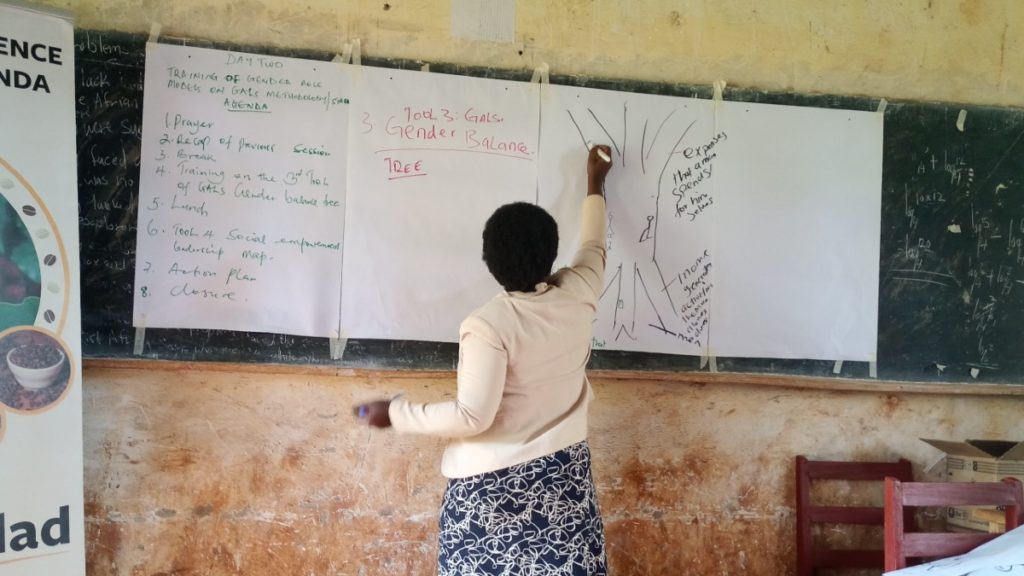
Towards an Inclusive Coffee Value Chain
Women play a critical role in coffee production but continue to face obstacles and inequality. The barriers to women’s participation in coffee exacerbate their social and economic vulnerabilities. Through Practice for Change Coffee, Solidaridad is promoting inclusion of women in the coffee value chain using the Solidaridad Gender ABC framework and the Gender Action Learning System methodology. These participatory approaches were designed to give both women and men control and tools to enable them to realise personal, household and community development. So far, 40 gender role model households in Uganda have received training and support to champion community-led solutions to the existing biases in gender relations.
Prior to the training, my spouse had full access and control of our income from coffee. I was not involved in decision-making and planning for our joint resources, which led to frequent domestic quarrels. This has since changed; my spouse and I now make decisions jointly on how to spend our resources together.
Namaleya Janet, coffee farmer in Bumugibole Parish, Bulambuli District

